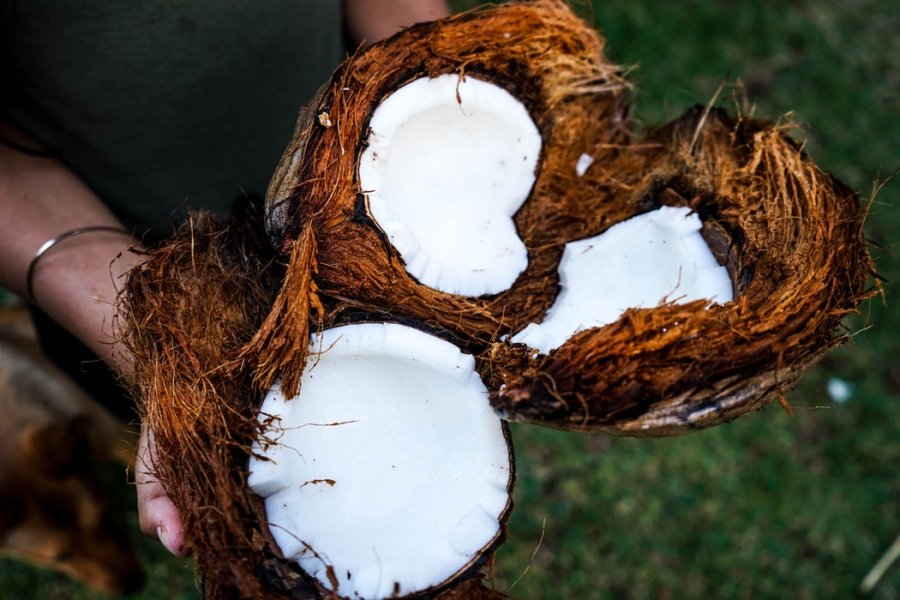10 surprising uses of coconut oil

So everyone knows coconut oil can be used for as a cooking oil with a high smoke point, an effective moisturiser for dry skin and topically applied for shiny hair. But did you know it also had these uses?
Dental — recent research suggests that coconut oil is beneficial in reducing plaque formation and plaque induced gingivitis. It has also been shown to increase absorption of calcium and magnesium. These qualities make coconut oil ideal in toothpastes, mouthwashes and for oil pulling. In Ayurvedic medicine practice, oil pulling is used to detoxify the mouth, killing bad breath, fighting bacteria, cures tooth decay, and helps to boost the immune system. Swish 1 tablespoon of coconut oil immediately after rising in the morning. Spend 10-20 minutes swishing; do not swallow the oil. Spit the oil into the trashcan (not into the sink!) and rinse with sea salt water.
Cuts and bruises — when applied to infected areas, coconut oil forms a chemical layer that protects the infected body part from external dust, air, fungi, bacteria and viruses. Coconut oil is highly effective on bruises because it speeds up the healing process of damaged tissues.
Makeup remover — Just a small dab of coconut oil will quickly liquefy eye makeup, making it easy to wipe off. Rub coconut oil gently onto the upper lids and lower lids in a circular motion. Wipe off with a warm cloth or cotton round.
Personal lubricant — coconut oil can be used as a natural and effective alternative to store-bought lubricant. It is not compatible with latex though, as it causes it to lose its elasticity and break down, so do not use it with condoms.
Pet care — Taken orally, coconut oil can reduce itching and nourish the dry, irritated, or inflamed skin that is the result of the inappropriate response to various allergens. It can also soothe a dry canine nose. Plus, they usually love it!
Bug repellent — mix a tablespoon of coconut oil with a couple of drops of peppermint, rosemary, and tea tree oil to repel flies, mosquitos, gnats, and bees. This is a safe alternative to DEET and can be applied safely on all areas of the body.
Shaving lotion — coconut oil gives a close shave and is a moisturizer at the same time.
Diaper cream — for use with cloth diapers. With its antibacterial, antifungal, and antiviral actions, plus its soothing and moisturizing benefits, it’s ideal. Just rub on baby’s bottom.
Preserve eggs — paint a thin coating of coconut oil over the eggshell to preserve quality and extend shelf-life. The oil prevents degradation from exposure to oxygen, and studies have found that the oil coating maintained an AA grade up to 3 weeks after storage, as opposed to when a glycerol coating was used. The grade refers to the Haugh unit, which measures the quality of the egg protein in the white.
Use in the sun — on its own, it has an SPF of 4-6. This helps a little, but not enough to make it a substitute. That being said, try applying coconut oil in between re-applications of sunscreen. It will help hydrate your skin and prevent it from drying out. Should you get burned, it can also help prevent peeling and itching.
What do you use coconut oil for?